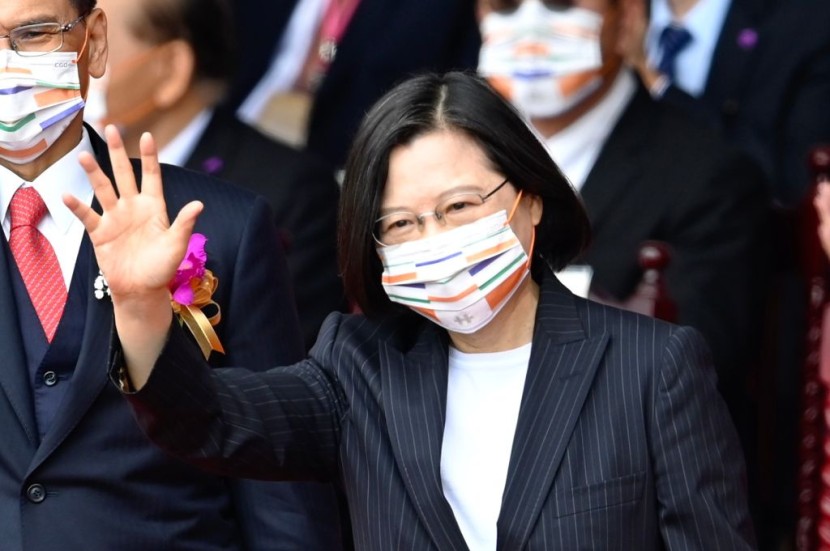
A US diplomat said the US aims to strengthen its ties with Taiwan, the self-ruled island that has been a key source of friction in the tense US-China relationship and would try to offset Beijing's "malign" influence.
Sandra Oudkirk, the new head of the American Institute in Taiwan, the de facto embassy, said in her first public press conference that the United States remains profoundly committed to Taiwan and is actively working on new areas of collaboration such as cybersecurity and supply chains.
US backs Taiwan amid all-time high tensions against China
The United States' backing for Taiwan comes at a time when tensions between China and the island are at an all-time high, with Beijing increasing its military harassment of Taiwan by flying fighter planes toward the island. China has not ruled out using force to reunite with Taiwan, which broke away from the mainland in 1949 after a civil war, The Washington Post reported.
In 1979, the United States moved diplomatic recognition of China from the reigning Nationalist Party government in Taipei to the Communist Party in Beijing, although the two countries have maintained a strong unofficial connection.
After Taiwan President Tsai Ing-wen acknowledged Thursday that US forces were present on the island, Oudkirk declined to comment on any security efforts or provide any specifics regarding the presence of US troops on the island.
Taiwan has benefited from US weaponry purchases to improve its capacity to protect itself, and the US often navigates the seas around the island in what it refers to as "freedom of operation" maneuvers.
On Tuesday, US Secretary of State Antony Blinken urged other UN members to defend Taipei's independence in international organizations dealing with transportation, health, climate change, culture, and education. The World Health Organization, for example, does not recognize Taiwan.
Taiwan resists China's aggression
Per Big News Network, although the two sides have been ruled independently for more than seven decades, Beijing claims complete sovereignty over Taiwan, a democracy with almost 24 million people located off the southern coast of mainland China.
Taipei, on the other hand, has resisted Chinese aggression by strengthening strategic connections with democracies, especially the United States, which Beijing has always opposed.
China has repeatedly warned that "Taiwan's independence" will result in war. On June 1, Chinese President Xi Jinping swore to complete reunification with self-ruled Taiwan and warned to crush any moves by the island to gain official independence.
The decision by Taiwan's propaganda mouthpiece to acknowledge that US soldiers were stationed on the island had "crossed the bottom line" and may "trigger war." It comes after Chinese fighter planes breached Taiwanese airspace for the first time in the previous month, heightening tensions between Taipei and Beijing.
Around 150 intrusions by Chinese fighter planes, nuclear-capable bombers, and other military aircraft in the first four days of October. Taiwan and mainland China have been governed independently since the end of the Chinese civil war in 1949 when the Nationalists fled to Taiwan, as per Sky News.
Related Article : Taiwanese President Tsai Ing-wen Revealed US Troops Present on the Island Amid Fears That China Could Attack Any Day
@YouTube
© 2026 HNGN, All rights reserved. Do not reproduce without permission.








